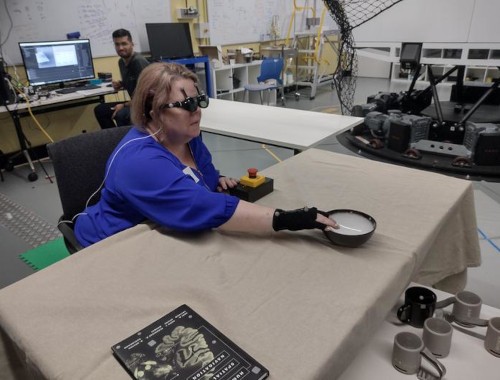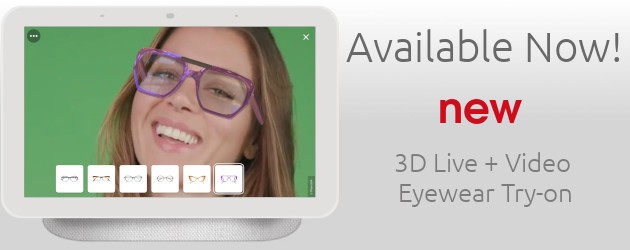Australian Researchers Unveil Technology that Transforms Lives for the Blind and Visually Impaired
 Australian researchers have unveiled groundbreaking technology known as "acoustic touch," offering newfound hope and independence for individuals living with blindness or low vision. This innovative technology, developed by a collaboration between the University of Technology Sydney, the University of Sydney, and Sydney-based start-up ARIA Research, has the potential to revolutionise the lives of millions worldwide.
Australian researchers have unveiled groundbreaking technology known as "acoustic touch," offering newfound hope and independence for individuals living with blindness or low vision. This innovative technology, developed by a collaboration between the University of Technology Sydney, the University of Sydney, and Sydney-based start-up ARIA Research, has the potential to revolutionise the lives of millions worldwide.
According to the World Health Organization, there are approximately 39 million blind individuals and an additional 246 million people with low vision across the globe. The challenges they face in everyday life activities, from identifying household items to navigating their surroundings, have long been a focus of research and innovation.
The latest development in this realm is a next-generation wearable device, referred to as "smart glasses," capable of translating visual information into distinct sound icons. These smart glasses employ acoustic touch technology to provide users with a unique sensory experience, allowing them to "see" the world using sound.
Distinguished Professor Chin-Teng Lin, a global leader in brain-computer interface research at the University of Technology Sydney, explained, "Smart glasses typically use computer vision and other sensory information to translate the wearer's surroundings into computer-synthesized speech. However, acoustic touch technology sonifies objects, creating unique sound representations as they enter the device's field of view. For example, the sound of rustling leaves might signify a plant, or a buzzing sound might represent a mobile phone."
A recent study investigating the effectiveness and usability of acoustic touch technology, led by Dr. Howe Zhu from the University of Technology Sydney, has been published in the journal PLOS ONE. The research involved 14 participants, seven of whom had blindness or low vision, while the other seven, sighted individuals, served as a control group.
The results of the study revealed that the wearable device equipped with acoustic touch technology significantly improved the ability of blind or low-vision individuals to recognize and reach for objects, all with minimal mental effort. Dr. Zhu noted, "The auditory feedback empowers users to identify and reach for objects with remarkable accuracy. Our findings indicate that acoustic touch has the potential to offer a wearable and effective method of sensory augmentation for the visually impaired community."
This technology's implications go beyond convenience; it addresses real-world challenges that individuals with blindness or low vision encounter daily, such as locating specific household items and personal belongings. The development of acoustic touch technology signifies a substantial step toward enhancing their independence and overall quality of life.
As ongoing advancements continue to refine this technology, acoustic touch has the potential to become an integral part of assistive technologies. It offers individuals with visual impairments the means to access their environment more efficiently and effectively than ever before, opening doors to newfound possibilities and a brighter future.



